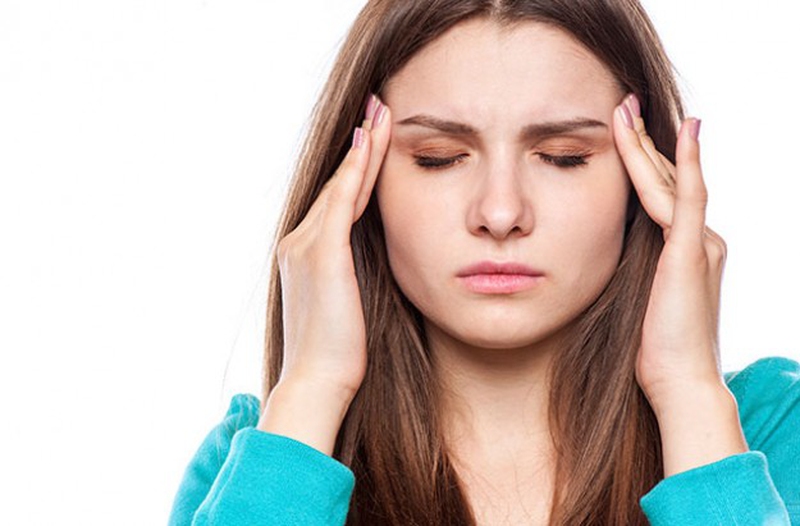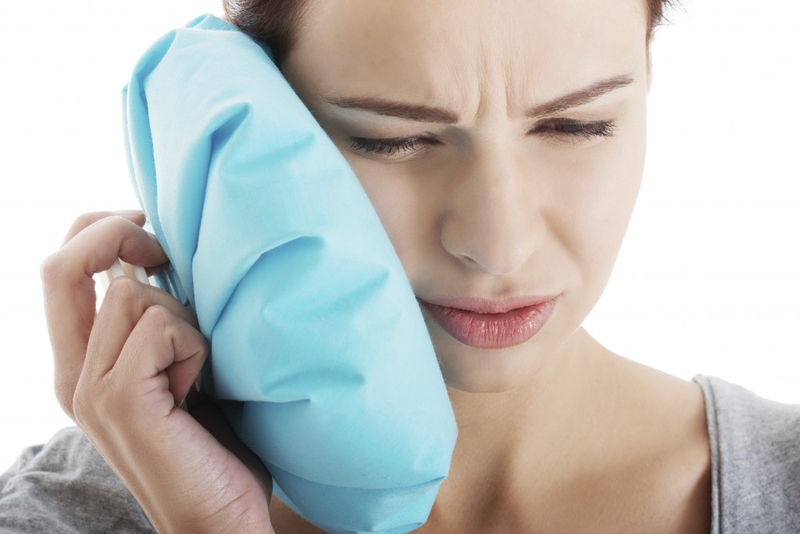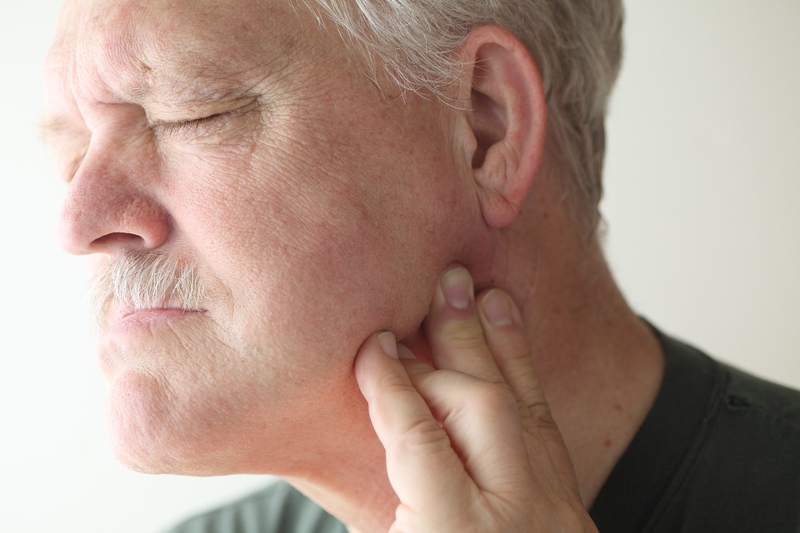Toothache is something that can happen to anyone who has some sort of tooth infection. The headache normally occurs on the very side of the pained teeth. The pain might get so intense that sometimes, it becomes impossible for you to lie down. Even sleeping becomes impossible till the time you get some treatment. Let’s find out the co-relation between both aches.

Why Do We Experience Toothache with Headache?
Both aches can be interrelated, as it’s our trigeminal nerve that causes it all. The trigeminal nerve is the main sensory nerve in our brain that carries all the sensations to head, jaw, face and scalp. It is a sensitive nerve and if one branch of it gets affected by any issue, it may disrupt the functioning of other branches as well. That is why if you ever experience severe pain in your jaw or teeth (or any other facial muscles), you might experience headache with it.
Most Common Causes of Toothache and Headache
Tooth Abscess
Bacterial invasion in dental pulp is known as tooth abscess. This condition prevails when the bacteria enters into the roots of the teeth through some crack or cavity and causes inflammation. This pain accompanies other symptoms like headache, fever, vomiting and nausea. Lingual nerve identifies pain and discomfort and instantly sends a message to the brain and we experience pain or throbbing in our head (on sides or on the top of the head). Keeping in view the severity of the situation, you are advised to get some medical assistance from your dentist; taking over-the-counter pain killers is not the cure. To get rid of it, you would have to go through the procedure of root canal or an incision in the gum tissues. In addition to that, the dentist may recommend some antibiotics to fight the infection.
Temporomandibular Joint Dysfunction/Disorder (TMJ)
Dysfunction in temporomandibular joints (joint that connects lower jaw bone and temporal bones of the skull) can also cause toothache with headache. The movement of these joints depends on our face muscles. And any dysfunction in these muscles results in intense pain. And if our jaws get affected, it may cause headache. Some causes of TMJ disorder include—grinding of teeth abnormally, chewing of gums for longer times and chewing hard food. The headaches that are resulted from TMJ disorder can happen on single or both sides of head (that’s quite unlike to the headache resulting from some teeth infection that remain confined to the infected side, mostly). Instead of taking pills on your own, you are advised to get it checked from some professional dentist. The most common treatments for the pain are—intake of painkillers, use a mouth guard before going to bed or try warm or cold compress.
Cavities
Those who don’t pay heed to their oral health or those who love to eat fatty foods and sugary drinks, are likely to suffer from the pain of cavities. When you have cavity, it eats up all the enamel of the tooth, leaving you exposed to hot and cold food. When the nerves detect this pain, they send the pain signals to other parts of the face and that results in toothache with headache. The headache resulted from cavities may come in different ways. It could be a solid pain as well as a pain in the form of waves (what you eat and drink one after another causes pain in waves). To cure it, taking ibuprofen is the least you can do. It might give you a timely relief but getting a proper treatment for cavities (filling the cavity to avoid further decay) is the ultimate solution.
Malocclusion
Occlusion signifies the connection between upper and lower teeth at the time of chewing. Malocclusion (bad bite) is a condition that results in tension in our temple muscles (temple muscles deals with movement of jaws). When you have trouble in chewing, the muscles in our temple are disturbed and finally we end up with tension headache, migraine, shoulder and neck pain. Conditions that may result in troubled chewing involve—gum problem, infected teeth, receding gums and mispositioned jaws.
Wisdom Teeth
Growth of the wisdom teeth is yet another common cause of headaches. In some cases, it’s not an issue while in some, it takes months to grow completely. Sometimes, this gradual process of teeth’s growth may affect the other parts of the face, including head. Secondly, if your wisdom teeth get infected with puss, you are quite likely to experience wisdom teeth headache. Removing the wisdom teeth can help in getting rid of this issue permanently. Sometimes when not treated, the infection may spread to the other parts including brain (that may cause death).
Some other Causes
Many of us have no idea that an infection in other facial muscles can cause you toothache along with headache. Here are a couple of them.
Sinus Infection
Many times, when you are having symptoms of toothache, particularly in the upper jaw, it is because of sinus infection (pressure in nasal cavity). The pain of sinusitis may extend to the other parts including your forehead and you feel headache.
Ear Infection
If you have toothache with headache, you can’t rule out an ear infection. Ear infection often comes with toothache. The closeness between the two (ear and jaws) might confuse you about the nature of the pain. Getting assistance from some specialist might help. This pain may extend to the upper facial part, causing headache with toothache.
What to Do about the Pain
In any case, if you happen to have severe pain that is not relieving through any medicine, you better get immediate aid. If you leave your teeth infections uncured, these can spread to other parts of body (including bloodstream) or you can have large pus pockets inside your mouth.


View All Comments /Add Comment